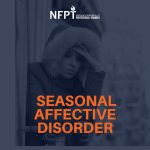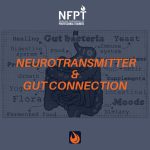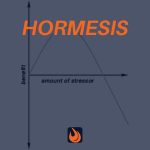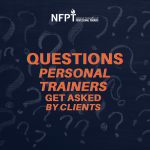
The holiday season is fast approaching, and we are entering a time where fitness clients experience extreme “overeaters’ remorse”. With an abundance of food and drink options (many calorie-laden in nature) and a decline in physical activity during this season, clients tend to feel as if they’ve “failed” or “fallen off the wagon.” As exercise professionals, we have an opportunity to help reframe the thoughts our clients experience and teaching them what to do instead of marinating in guilt over food. Below are some approaches to helping clients shift their mindset.
Typical Responses to Overeating
I am sure many of my fellow professionals can relate to the following habit patterns and statements I have witnessed throughout my career.
- I ate way too much this weekend, so I skipped breakfast and lunch today.
- I worked out for an extra half hour today to “burn off” that dessert I had last night.
- That’s it. I’m cutting out X, Y, and/or Z.
- I went through my pantry and threw away all my “trigger” foods.
- I had chips and a brownie yesterday. I feel so guilty.
- I had too many “bad” foods this week.
- I was “good” all week and ruined my streak by having pizza last night. I feel bad. I am never going to make progress.
- I’m only going to use cauliflower for my “carbs” from now on.
Does any of this sound familiar? Perhaps we’ve even said some of these same statements (or versions of them). Diet culture is partly to blame because the message is “food is either good or bad.” There’s no morality with food; no one should feel guilty for enjoying food. Good food and food that is good for us are not mutually exclusive.
Types of Hunger
Before working with clients to reframe their thought processes and reduce cognitive distortions, clients need to understand the difference between types of hunger. Let’s look at what they are.
Biological hunger – this is the physiological need to eat characterized by fatigue, brain fog, a growling stomach, etc.
Taste hunger – when this type sets in, it’s usually because something sounds good even though we are not necessarily “hungry” by definition of “needing” to fuel. For example, you already ate lunch, but your colleague brings cookies to work. You have one because it simply sounds good.
Emotional hunger — this is also psychological hunger – we feel driven to consume something (mostly comfort foods) because of an emotional upset or concern. Stress eating is also a form of emotional hunger.
Practical hunger – This occurs when there is a need to eat in response to anticipated hunger at a later point. For example, you have a client who runs 6 miles. Although they don’t feel hungry after completing the workout, they likely need to get a combination of carbs and protein to optimize recovery.
You can begin reframing thought patterns by helping clients grow in their understanding of what types of hunger they experience throughout the day and week.
Reframing Common Responses to a Problematic Mindset
Focus on sharing practical approaches that will help your clients stay on track and reassure them that they aren’t “off track” simply because they ate foods they enjoy. Emphasize to clients how these common responses work in opposition to their goals. Here’s the truth.
- Skipping breakfast leads to unnecessary fatigue, cognitive fog, and a hyper-focus on food. A restrictive approach strengthens the desire to eat, and it can lead to overeating.
- Cutting out or eliminating carbohydrates will most likely lead to overconsuming the less beneficial kind of carbohydrates at a later point. Having no carbs on board is not helpful for performance or focus.
- Consuming foods perceived as less healthy on one day will not derail progress. Consistently engaging in healthful practices is key but enjoying foods clients previously labeled as bad is not “unhealthy” (only in the eyes of diet culture and who cares what those pushing that message think!).
- Tossing all the foods a client enjoys will only erode the potential for that client to develop a healthy relationship with food and practice self-trust and moderation in the presence of “fear or trigger foods”.
- Exercise should not be a punishment for what was eaten the day before. There’s no need to “burn off” anything. The message should be on engaging in healthy beneficial movement and enjoying what the body can do.
- Cauliflower is a nutrient-dense option, but it’s also not punishment (and shouldn’t be labeled as such). It’s also not any healthier to substitute it for something like quinoa, potatoes, or brown rice. Cauliflower is not the answer to all dietary issues (and aren’t we thankful for that!).
Practicing helping your clients reframe their thought patterns and overcoming typical cognitive distortions that are the culprits for derailing progress (not the brownie a client had at lunch). Thoughts have power. Help clients harness that power in a productive and progressive way.








